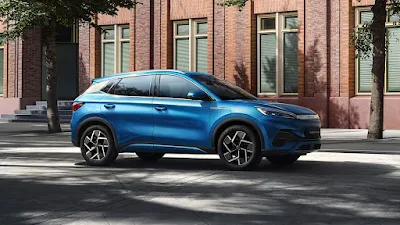Chinese brands and Chinese made vehicles may soon invade Europe en masse to the tune of 800,000 units by 2025 thanks to the economic bloc’s shift to all-electric vehicles. This is based on a study conducted by PricewaterhouseCoopers (PwC).
This development will turn Europe to a net importer of cars with a 2025 import surplus of more than 221,000 vehicles. This is compared to the economic bloc being able to export around 1.7 million vehicles in 2015.
The shift will come as Chinese brands increase market share and, at the same time, European brands build more EVs in China.
Of the potential 800,000 Chinese-built cars, about 330,000 would be from Western automakers such as Tesla, BMW, and Renault Group, all of which currently export EVs to Europe from China, including the Tesla Model 3 and the BMW iX3.
Moreover, as Western (and Japanese) automakers continue to face supply chain issues and are focused on building more expensive and lower volume EVs, Chinese manufacturers have optimized and developed their products using their own supply chains. Now, they are able to bring these battery electric vehicles to Europe.
Earlier efforts by Chinese brands to enter the European market have largely failed, but China’s growing expertise in EVs could become a competitive advantage this time around.
PwC is forecasting that Chinese brands will have an EV market share of 3.8 to 7.9 percent in Europe.
Of course, much of China’s expansion into the European carmaker depends on how well the brands are perceived. As of the moment, Chinese brands are still relatively unknown in Europe.
Still, this year, analysts say 200,000 vehicles from Chinese brands are likely to be sold in Europe, with about 90,000 full-electric, 40,000 plug-in hybrids and the rest with conventional drivetrains.
The leading Chinese EV makers through the first seven months of the year are SAIC’s MG and Geely’s Polestar. Other brands such as Nio and XPeng have so far struggled to make an impact. In Western Europe, Chinese brands had a 5.2 percent share of the EV market in the first half of this year, compared with 3.8 percent in the first half of 2021.
Significant volumes are expected next year from Smart, Geely’s and Mercedes-Benz’s joint venture, which will build its new generation of EVs in China rather than in Europe.


Yikes
ReplyDelete